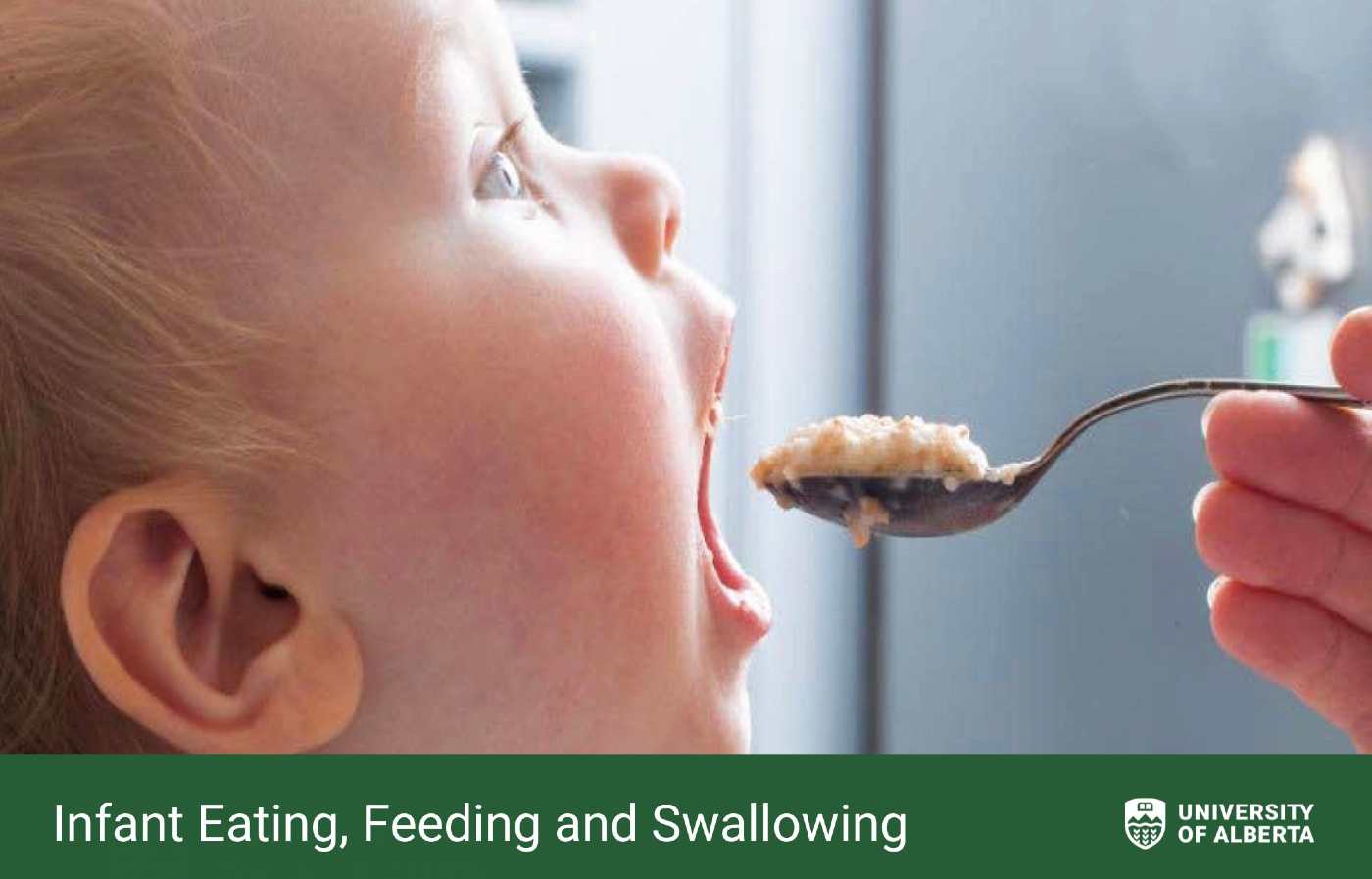Infant Eating, Feeding, and Swallowing: Theory + Clinical Application

Course description
This online microcredential is an introduction to infant eating, feeding, and swallowing in the first year of life. Clinicians will learn about the impact of preterm birth and medical conditions on the development of eating, feeding, swallowing, and behavioural organization. Clinicians will have opportunities for clinical application of theoretic content. For example, they will develop a plan for assessing oral feeding and swallowing skills for the infant from birth through one year and for therapeutic interventions used to support development of eating, feeding and swallowing skills within a nurturing feeding relationship.
Now registering for the course running February 17 - March 28, 2025
Join our email list to receive new courses and deadline updates! 📧
Course Goals
This course is designed to provide clinicians with a base of knowledge in the roles a feeding therapist plays in the multidisciplinary context of an eating, feeding, and swallowing team. Clinicians will develop an understanding of common conditions that affect newborns, their impact on development, feeding, and swallowing, and approaches to assessment and treatment.
Course Hours
The microcredential is approximately 1 credit equivalent (13 content hours). However, you should expect to spend somewhere between 18-35 total hours on the course (varies depending on the individual). We do equate the course on the high end of that and 35 educational hours appear on the digital certificates that are issued after course completion
Course learning objectives
- Discuss the major milestones in the development of body systems involved in feeding and the impact of preterm birth.
- Identify infant behaviours and what they communicate.
- Explain how to provide responsive interventions for positive feeding experiences.
- Understand development of oral motor and feeding skills in infants born premature, neonates, and at various stages from birth through 12 months.
- Describe common conditions across body systems and their impact on eating, feeding, and swallowing in the developing infant.
- Discuss the foundational skills for infant feeding.
- Clinically evaluate infant eating, feeding, and swallowing skills.
- Discuss supportive strategies to optimize feeding for infants at risk.
- Discuss strategies supporting families to recognize their infants’ cues, build reciprocal interactions, and establish positive feeding relationships.
- Apply theory learning to practical case study examples.

Course Instructor
Julia Giesen, MSc. SLP, R.SLP, S-LP(C) is a speech-language pathologist with 14 years of clinical practice working with pediatric patients in their homes, community programs, rehabilitation, and acute care settings. She previously worked as a clinical educator in the department of Communication Sciences and Disorders at the University of Alberta and is an Assistant Lecturer, teaching the elective course “SLP in the NICU”. She currently works as a feeding and swallowing specialist in the Stollery Children’s Hospital’s Philip C. Etches Neonatal Intensive Care Unit (NICU). She is certified as a NIDCAP professional (the Newborn Individualized Developmental Care and Assessment Program) and as an instructor for Family and Infant Neurodevelopmental Education (FINE). She draws on this learning to coach families and NICU staff in providing developmentally supportive, responsive care for infants.
More Information
Apply at:
$250 Course Fee:
A 100% refund of the $500 course fee is available to students who withdraw before the first day of the course. Withdrawal requests during the first 3 weeks of the course will be refunded 50% of the registration fee. After 3 weeks (mid-point of the course) no refund will be provided.
The course content is delivered 100% asynchronously meaning there is no requirement to be online at a specific class date and time. Participants can complete the learning activities in a place and time of their choosing. Content is accessible twenty four (24) hours-a-day from any location with an internet connection.
There are no grades for this course. Instead, students receive a complete or incomplete score based on satisfactory completion of the course. To successfully complete the course students are required to work through all learning activities and achieve 60% on all the knowledge check quizzes at the end of each module. Students are given unlimited quiz attempts and can challenge these at any time throughout the course.
Upon successful completion of each module participants will be issued a faculty digital certificate noting the number of educational hours.